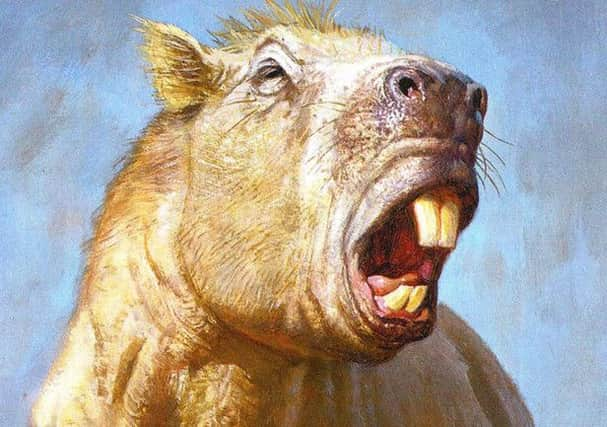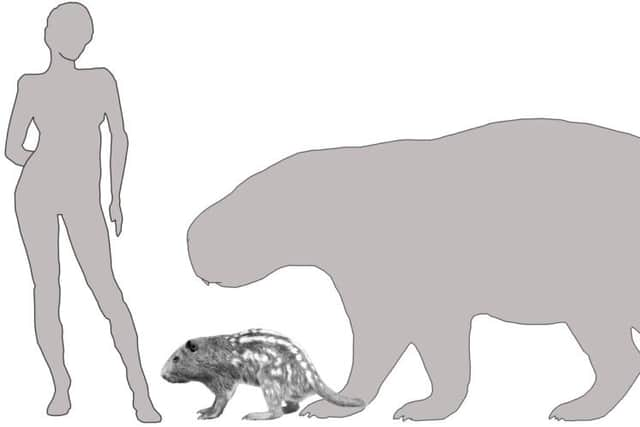The three million year-old giant guinea pig that weighed a ton


Experts believe it may have used its giant rodent teeth in the same way an elephant uses its tusks, to dig for food and defend itself.
Josephoartigasia monesi, which is closely related to modern guinea pigs, is thought to have weighed a metric tonne.
Advertisement
Hide AdAdvertisement
Hide AdScientists used computer simulation methods to estimate how powerful a bite it had.


They came up with a force of around 1,400 Newtons - about the same as that of a tiger’s clamping jaws.
But the incisors would have been able to withstand almost three times that amount of force, according to the research.
Lead scientist Dr Philip Cox, from the University of York, said: “We concluded that Josephoartigasia must have used its incisors for activities other than biting, such as digging in the ground for food, or defending itself from predators.
Advertisement
Hide AdAdvertisement
Hide Ad“This is very similar to how a modern day elephant uses its tusks.”
The study, published in the Journal of Anatomy, involved scanning a Josephoartigasia monesi specimen and creating a virtual reconstruction of its skull.
This was then subjected to an engineering technique that predicts stress and strain in a complex geometric object.